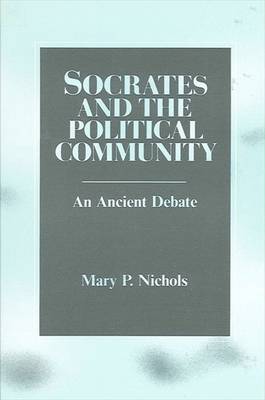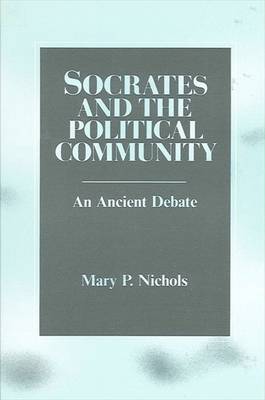
- Afhalen na 1 uur in een winkel met voorraad
- In januari gratis thuislevering in België
- Ruim aanbod met 7 miljoen producten
- Afhalen na 1 uur in een winkel met voorraad
- In januari gratis thuislevering in België
- Ruim aanbod met 7 miljoen producten
Omschrijving
This book takes a fresh look at Socrates as he appeared to three ancient writers: Aristophanes, who attacked him for his theoretical studies; Plato, who immortalized him in his dialogues; and Aristotle, who criticized his political views. It addresses the questions of the interrelation of politics and philosophy by looking at Aristophanes' Clouds, Plato's Republic, and Book II of Aristotle's Politics-three sides of a debate on the value of Socrates' philosophic life.
Mary Nichols first discusses the relation between Aristophanes and Plato, showing that the city as Socrates' place of activity in the Republic resembles the philosophic thinktank mocked in Aristophanes' Clouds. By representing the extremes of the Republic's city, Plato shows that the dangers attributed by Aristophanes to the city are actually inherent in political life itself. They were to be moderated by Socratic political philosophy rather than Aristophanean comedy.
Nichols concludes by showing how Aristotle addressed the question at issue between Plato and Aristophanes when he founded his political science. Judging Plato's and Aristophanes' positions as partial, Nichols argues that Aristotle based his political science on the necessity to philosophy of political involvement and the necessity to politics of philosophical thought.
Specificaties
Betrokkenen
- Auteur(s):
- Uitgeverij:
Inhoud
- Aantal bladzijden:
- 248
- Taal:
- Engels
- Reeks:
Eigenschappen
- Productcode (EAN):
- 9780887063961
- Verschijningsdatum:
- 1/07/1987
- Uitvoering:
- Paperback
- Formaat:
- Trade paperback (VS)
- Afmetingen:
- 152 mm x 229 mm
- Gewicht:
- 367 g

Alleen bij Standaard Boekhandel
Beoordelingen
We publiceren alleen reviews die voldoen aan de voorwaarden voor reviews. Bekijk onze voorwaarden voor reviews.









